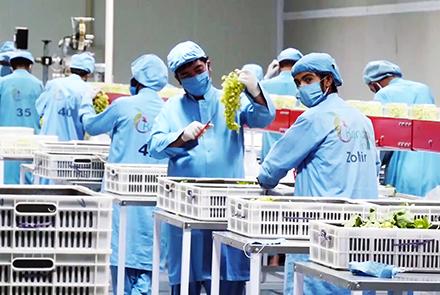Afghan Ministry of Economy said it has started work on developing the value chain of 15 types of domestic products in order to boost the national economy.
The ministry said a strategy has been developed to increase the value of a number of domestic products and to address challenges in the production, processing and packaging areas of these goods so as to increase their value on global markets.
Officials said with improvements, the sale of these goods will help boost national revenue.
“In order to identify the goods that can boost national and local economies through added value, we will implement specific programs and prioritize (plans to promote) these products,” said Mohammad Ismail Rahimi, deputy minister of economy.
Meanwhile, the ministry of mines and petroleum (MoMP) said that based on the ministry’s plan, the MoE will also look at attracting investment in the mining sector – specifically that involving the extraction of natural stone used in the construction sector.
MoMP officials said mining in the country could rapidly boost the country’s economy.
“There are a number of mines in the country that, with a little investment, great benefits will be seen. Similarly, we have prioritized a number of mines in order to utilize them to increase the national revenue,” said MoMP spokesman Abdul Qadeer Mutfi.
Last month, MoMP officials said they have established committees to tackle problems relating to 15 mining projects in the country.
Officials said the ministry has prioritized the issue of resolving these problems.
“This issue is a priority and resolving the problems around these projects is very important for the people of Afghanistan and for the country’s economy,” said Waliullah Zadran, acting director of legal services for the ministry of mines.
However, mining experts have said that in the absence of a clear vision for the development of mines in the country, problems in relation to the projects will continue.
These mining experts also said the lack of capacity within the ministry of mines is an ongoing challenge.
“I think that in the present situation, the ministry will not be able to solve these great problems of mines; maybe it's a start, but if we do not have a clear vision for our projects, it's unlikely that we will achieve results,” said Sayed Zaman Hashimi, a legal expert in the mining industry.
Seventeen years ago, attempts were started to begin the extraction of minerals at the country's largest mines.
Of these, Aynak Copper Mine, Hajigak Iron Mine, Tajik and Amu Darya oilfields, and several other mines, were earmarked as key mines but little has been done to date to get these mines up and running.

